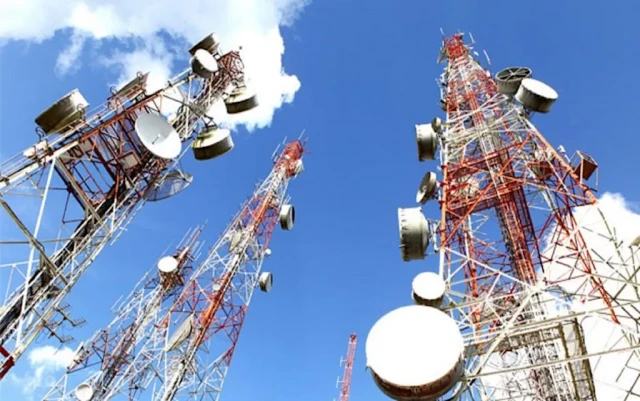Nigeria has granted approximately 1,154 telecom licenses to operators over the past twenty years since the onset of the telephony revolution in the nation.
This process has been supported by the Nigerian Communications Act (NCA) of 2003.
However, the Act is currently undergoing revisions to integrate recent advancements in the ICT sector, which encompass emerging technologies, cyber security, and local content.
As of three years ago, the telecom sector was valued at an estimated $76 billion, driven by the array of services provided by licensed operators since the industry transformation commenced.
According to a report titled ‘The Nigerian Communications Act (NCA) 2003: Impact Analysis of the Communications Sector,’ these licenses have contributed to a 14.4 percent share of the country’s Gross Domestic Product (GDP) as recorded in the last quarter of 2024, and have facilitated telephone services access to more than 160 million active subscribers as of the first quarter of 2025.
The Nigerian Communications Commission (NCC) has issued these licenses, generating revenue for the Federal Government, which includes $863.9 million collected from MTN, Mafab Communications, and Airtel for 5G licenses between 2022 and 2023.
An investigation by The Guardian revealed that these licenses comprise Individual Licenses, Class Licenses, Unified Access Service Licenses, and Value Added Service License categories. Specifically, an individual license pertains directly to the service being delivered, with terms, conditions, obligations, scope, and limitations tailored specifically for that service.
The acquisition process for an individual license can differ and may involve auctions, tenders, fixed prices, or standardized administrative procedures.
For example, services necessitating an individual license might include Digital Mobile Services (GSM) for mobile network operators that provide voice and data services. Additionally, there is the Fixed Telephony (Wired or Wireless) license for operators offering fixed-line voice and data services, and international Gateway Services for companies managing the infrastructure that connects Nigeria's telecom networks with global networks.
Further examples in this category encompass National Long Distance Operator; Metropolitan (Fibre) Cable Network; Local Exchange Operator; and Internet Service Provider (ISP), among others.
Moreover, a class license represents a general authorization where the terms and conditions apply uniformly to all holders within that class. Registration with the NCC is typically required for applicants to initiate operations.
Common services falling under class licenses include Internet Exchange Point (IXP), Public Payphone Services, which cater to businesses offering public telephone access; Cybercafés; and Mobile Virtual Network Operators (MVNO).
The Unified Access Service (UAS) license is an individual license that permits the licensee to provide a variety of telecommunication services under one license. For example, a UAS license may enable an operator to deliver mobile and fixed telephony services, as well as national long-distance and gateway services. Current licensees with separate licenses may qualify to convert to a UAS license if they fulfill specific requirements, such as possessing an operational network infrastructure and a substantial customer base.
The second phase of Lagos State's metro fibre project, spanning 3,300km, has officially commenced.
Commissioner for Innovation, Science and Technology, Olatunbosun Alake, announced this progress during the ministry's annual Ministerial Press Briefing over the weekend in Lagos.
Alake noted that this new phase extends the original 2,700km already implemented across the state and aims to further enhance Internet connectivity and digital access in underserved regions.
"Between 2023 and 2025, the metro fibre initiative led to over one million new Internet subscribers.
It also allowed telecom operators to deploy infrastructure in parts of Lagos that have been historically overlooked,” he stated.




















